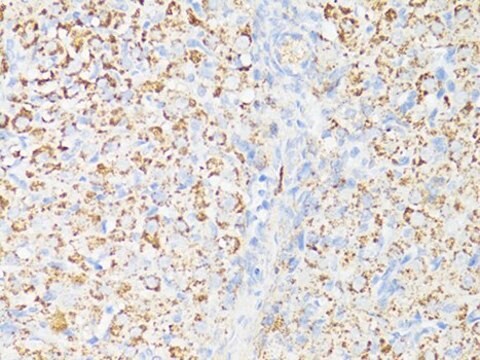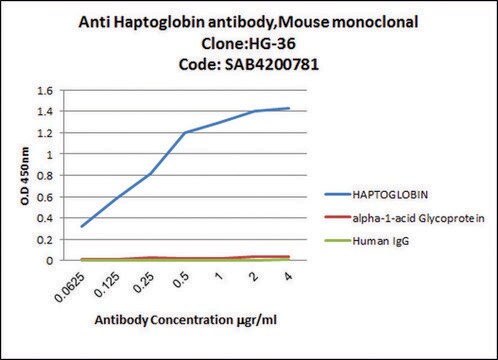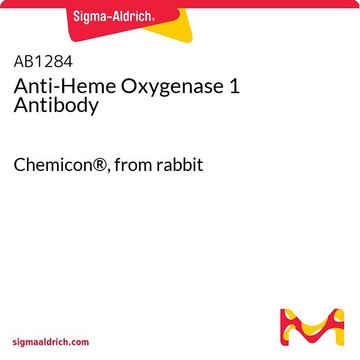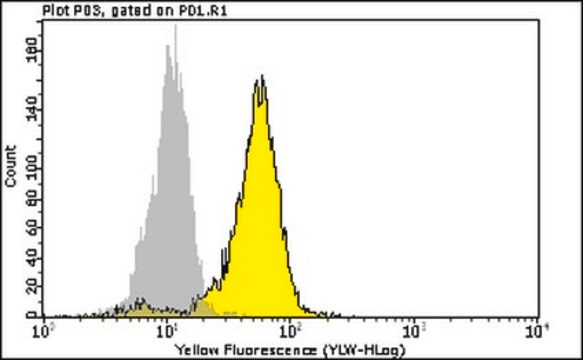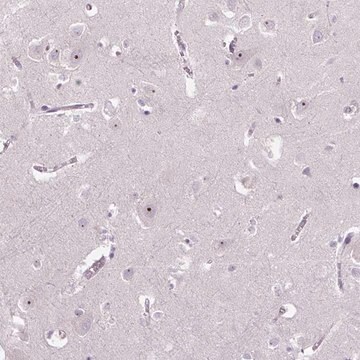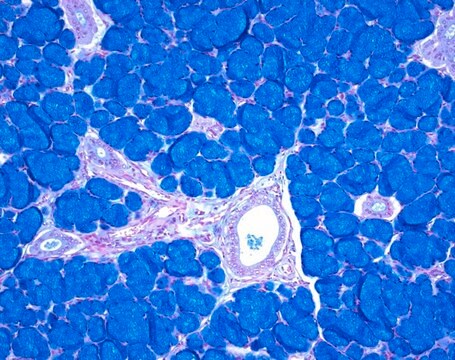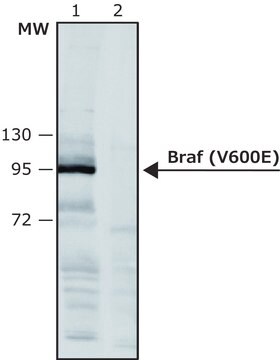09-774
Anti-EED Antibody
from rabbit
Synonym(s):
embryonic ectoderm development
Sign Into View Organizational & Contract Pricing
Select a Size
All Photos(4)
Select a Size
Change View
About This Item
UNSPSC Code:
12352203
eCl@ss:
32160702
NACRES:
NA.41
Recommended Products
biological source
rabbit
Quality Level
antibody form
purified antibody
antibody product type
primary antibodies
clone
polyclonal
species reactivity
human, mouse
species reactivity (predicted by homology)
dog, chicken, bovine, opossum, rat
technique(s)
western blot: suitable
NCBI accession no.
UniProt accession no.
General description
Polycomb group proteins are important for maintaining transcriptional silencing. One conserved PcG complex, PRC2, is composed of several proteins including the histone methyltransferase EZH2, the WD-repeat protein EED (Embryonic ectoderm development), and the Zn-finger protein Suz12. Transcriptional repression mediated by EED involves histone deacetylation, while the EZH2 methylates histone H3 on lysine 27. EED protein is present in four isoforms. These EED isoforms selectively associate with distinct EZH2-containing complexes, resulting in differential targeting of their associated methyltransferase activity. These complexes play a role in Hox gene silencing, X-inactivation, germline development, stem cell pluripotency and cancer metastasis.
Specificity
This antibody recognizes EED, Mr ~ 62-70 kDa.
Immunogen
A synthetic peptide corresponding to a.a. 429-441 of human EED, conjugated to KLH.
Epitope: a.a. 429-441
Application
Use Anti-EED Antibody (Rabbit Polyclonal Antibody) validated in WB to detect EED also known as embryonic ectoderm development.
Quality
Western Blot Analysis: 1 μg/mL of this lot detected EED on 10 μg of Jurkat cell lysate.
Target description
~53 kDa observed. Uniprot describes three isoforms at 51 kDa (isoform 1), 53 kDa (isoform 2), and 46 kDa (isoform 3).
Linkage
Replaces: 09-727
Physical form
Format: Purified
Analysis Note
Control
Jurkat Cell Lysate
3T3/A31 cell lysate
Jurkat Cell Lysate
3T3/A31 cell lysate
Other Notes
Concentration: Please refer to the Certificate of Analysis for the lot-specific concentration.
Not finding the right product?
Try our Product Selector Tool.
Storage Class Code
12 - Non Combustible Liquids
WGK
WGK 1
Flash Point(F)
Not applicable
Flash Point(C)
Not applicable
Certificates of Analysis (COA)
Search for Certificates of Analysis (COA) by entering the products Lot/Batch Number. Lot and Batch Numbers can be found on a product’s label following the words ‘Lot’ or ‘Batch’.
Already Own This Product?
Find documentation for the products that you have recently purchased in the Document Library.
Ji Young Oh et al.
Cellular physiology and biochemistry : international journal of experimental cellular physiology, biochemistry, and pharmacology, 46(5), 1749-1767 (2018-05-01)
Glucose plays an important role in stem cell fate determination and behaviors. However, it is still not known how glucose contributes to the precise molecular mechanisms responsible for stem cell migration. Thus, we investigate the effect of glucose on the
Epigenetic therapy with 3-deazaneplanocin A, an inhibitor of the histone methyltransferase EZH2, inhibits growth of non-small cell lung cancer cells.
Junko Kikuchi,Taichi Takashina,Ichiro Kinoshita,Eiki Kikuchi,Yasushi Shimizu et al.
Lung Cancer null
Bin Shi et al.
Cancer medicine, 8(14), 6383-6392 (2019-08-29)
The aims of this study were to investigate the link between enhancer of zeste homolog 2 (EZH2) and histone deacetylase (HDAC) in preclinical studies and in human lung cancer tissue microarrays. Enhancer of zeste homolog 2 and HDAC1 mRNA expression
Andrei Kuzmichev et al.
Molecular cell, 14(2), 183-193 (2004-04-22)
Human Enhancer of Zeste homolog (Ezh2) is a histone lysine methyltransferase (HKMT) associated with transcriptional repression. Ezh2 is present in several distinct complexes, one of which, PRC2, we characterized previously. Here we report an additional Ezh2 complex, PRC3. We show
The central role of EED in the orchestration of polycomb group complexes.
Cao, Q; Wang, X; Zhao, M; Yang, R; Malik, R; Qiao, Y; Poliakov, A; Yocum, AK; Li, Y; Chen et al.
Nature Communications null
Our team of scientists has experience in all areas of research including Life Science, Material Science, Chemical Synthesis, Chromatography, Analytical and many others.
Contact Technical Service